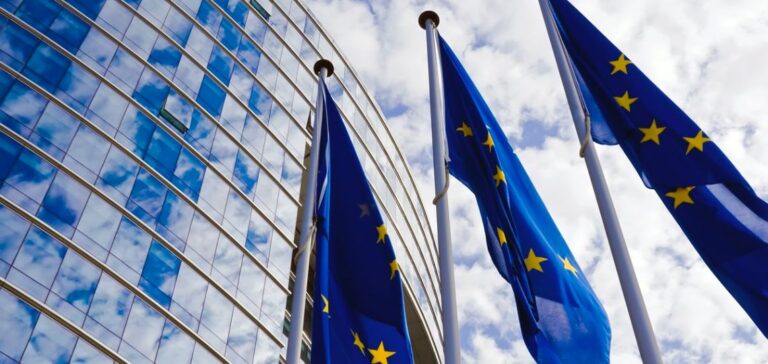European energy ministers have failed to agree on a cap on gas prices and have given themselves a week to reach an agreement and thus allow the adoption of other emergency measures to cushion the energy crisis.
“I was hoping to uncork the champagne today. The bottles will remain in the fridge (…) But I think we are almost there,” said Czech Industry Minister Jozef Sikela, whose country holds the rotating EU presidency, after the meeting.
Discussions were postponed to a new ministerial meeting on December 19. In the meantime, the heads of state and government may take up the issue at their summit on Thursday.
The EU-27 have been fighting for three weeks over a European Commission proposal to temporarily cap the prices of certain futures contracts on the benchmark TTF gas market in order to prevent further price increases.
This persistent division is paralyzing two other texts that have been agreed upon, but whose formal adoption is pending a decision on the gas price cap.
The first envisages grouped gas purchases, in which consortia of companies would participate, in order to obtain better prices together, and a solidarity mechanism automatically ensuring the energy supply of countries threatened by shortages.
The second simplifies the authorisation procedures for renewable energy infrastructures.
“These solutions are not perfect, but they are ready and they would bring prices down,” said Austrian Minister Leonore Gewessler.
“The objective remains to adopt these three texts together, a single package, next Monday,” said Jozef Sikela.
Guardrails
The Commission had initially proposed to cap the prices of monthly contracts on the TTF when they exceed €275/MWh for two consecutive weeks, provided that they are at least €58 above a “global average reference price” of liquefied natural gas (LNG).
Draconian conditions never met, even during the surge in prices last August, making any triggering extremely unlikely: some states (France, Spain, Poland, Greece …) had criticized a “bad joke” and demanded to strongly relax the conditions required.
On the contrary, several states (Germany, the Netherlands, Austria…) are opposed to any intervention and are demanding drastic “safeguards” to prevent a ceiling from threatening Europe’s gas supplies.
Some key suppliers, such as Norway, are concerned that a unilateral cap could also encourage some LNG suppliers to move away from Europe to more attractively priced Asian customers.
The Czech presidency has tried to “give guarantees to both sides”.
According to Jozef Sikela, an “agreement in principle” was reached on Tuesday to extend the cap to other markets than the FTT, but it will exclude over-the-counter (“OTC”) contracts outside any regulated market.
Other points of agreement: an evaluation of the system will be carried out “at the end of February”, and the possibilities of automatic deactivation in case of unforeseen disruptions “will be reinforced”.
Balance
“We have made great progress: 90% of the text is stabilized, with a limited number of points to be concluded on December 19, including the issue of the price at which the mechanism would be triggered,” confirms French Minister of Energy Transition Agnès Pannier-Runacher.
A crucial point: several countries, Greece, Italy, Belgium, had proposed to lower the threshold to 160 euros/MWh, a red line for others.
Prague tried to set the bar at 220 euros/MWh.
“The case is extremely delicate: it is wise to take a step back, to check if we are not making mistakes,” insisted the German Minister of Economy Robert Habeck.
The European Central Bank itself believes that an ill-conceived cap could exacerbate volatility and undermine “financial stability in the eurozone”.
“We have three objectives, none of which takes precedence over the other: to protect our industrialists in the event of irrational gas prices, to preserve the stability of the financial markets, and to guarantee the security of gas supply for the winter of 2023-2024″, abounds Mrs. Pannier-Runacher.
Time is of the essence: with winter, citizens and companies are suffering from the explosion of prices, “we must take our responsibilities and act without delay,” said Greek Minister Konstantinos Skrekas.





















